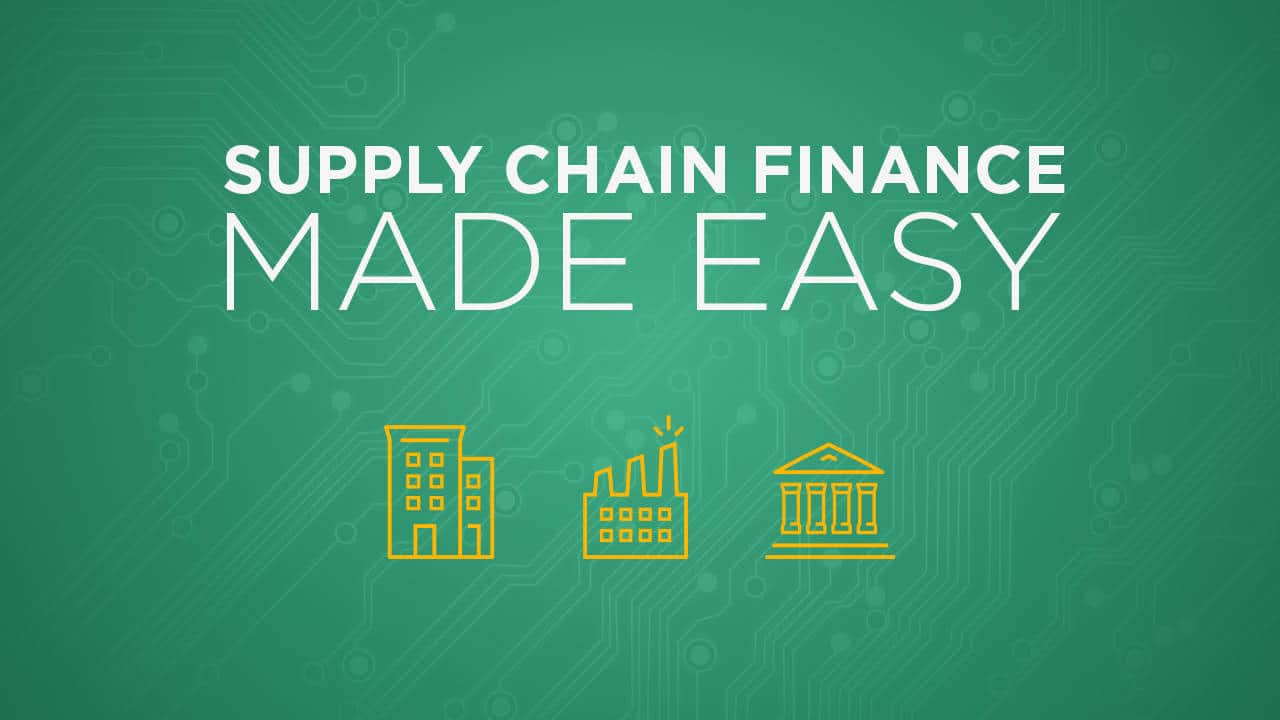Supply Chain Finance is a cash flow solution which helps businesses get working capital trapped in global supply chains.
This is a solution which mutually benefits the supplier as well as the buyer.
Under Supply Chain Finance, suppliers sell their invoices or receivables at a discount to banks or other financial service providers, often called factors.
The buyers also generally get more time to pay their dues under the supply chain finance.
The bank doesn’t need to rely on the creditworthiness of the supplier but deals with the buyer instead.
Supply Chain Finance reduces the risk associated with buying goods in bulk and transporting them globally.
What you Should Know about Supply Chain Finance
- Supply chain finance represents an actual sale of receivables for the supplier.
- Supply chain finance is not just for large companies, and it also provides value for firms of all sizes and credit ratings, including SME suppliers.
- This kind of financing does not require a bank; programs can be self-funded by the buyer, established without the participation of a bank for funding, or composed of a mixed program where financing is shared by the buyer, capital markets, and financial institutions.
- It does not need to be tied to a single bank – Supply chain finance with SCiSupplier provides multibank capability by providing the ability to more than 50 financial institutions worldwide.
Key takeaways of supply chain finance
- This is a tech-based business and financing processes linking the parties in a transaction for lower costs and improved efficiency.
- This kind of finance works well, especially when the buyer has a better credit rating than the seller and can thus access capital at a lower cost.
- Supply chain finance provides short-term credit that optimizes working capital for both the buyer and the seller.
How much does supply chain finance cost?
If you want to benefit from this finance, as a buyer, you need not pay any fee to extend payment terms.
As a supplier, you need only to pay a small discount if you want to get paid early.
Other supplier finance solutions include:
- Invoice discounting
- Reverse Factoring
- Local Purchase Order or Contract Financing
- Distributor Financing
Invoice discounting
With invoice discounting, you can draw money against invoices before the receipt of actual payment.
The business borrows a percentage of the value of its sales invoices (discount factor) from the bank, effectively using the receivables due as security for the borrowing.
Credit risk (the risk of default) is on the supplier.
Reverse Factoring
Buyers, while seeking this kind of financing solution initiate which invoices they wish to sell to the factor (financier).
This solution helps suppliers to finance their receivables at a lower cost since pricing is based on the buyer’s credit profile.
The credit risk (the risk of default) is hence on the buyer.
Distributor finance
Distributor finance offers major corporate clients (anchors) alternate financing solutions.
Solutions are either tailor-made to suit each distributor’s funding requirements, or distributors can otherwise use the credit lines to pay the anchor and enjoy credit terms which allow them ample time to sell the goods and pay-off the bank.
LPO Financing
This funding method allows clients to access funding based on a confirmed purchase order.
If you trade with reputable companies with good credit rating, this facility will be available to you.
With LPO financing, proceeds are released directly to the ultimate suppliers of goods or services being financed.
In this kind of financing, some level of collateral is needed due to performance risk issues associated with contracts.
In conclusion
Benefits to buyers/ importers
- Buyers can maintain a healthy balance sheet
- Buyers maintain a good relationship with suppliers
- Promotes competition/ diversity in suppliers
- Allows buyers to make purchases in bulk to save costs
- Buyers can work with complex end-to-end supply chains
- SCF doesn’t disturb existing bank relationships or overdrafts
Benefits to suppliers/ exporters
- Suppliers can get paid earlier than their usual 30-day credit terms
- Little financial risk – insurance is sorted through a supply chain financier
- Doesn’t cost the supplier any extra
- Allows the supplier to have the cash flow to work on numerous deals simultaneously
- Helps provide liquidity and reduces financing costs




